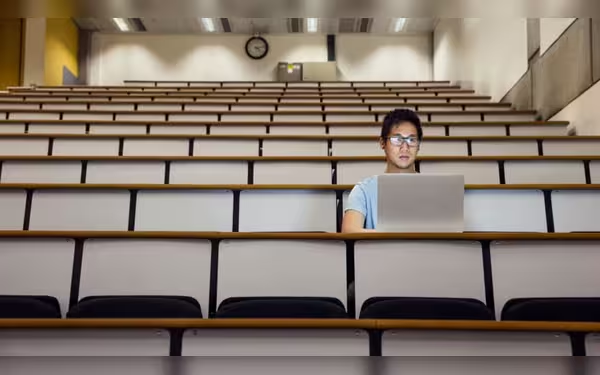Saturday, November 16, 2024 07:30 PM
AI Detectors in Education: A Cautionary Approach
- AI detectors may lead to unfair student punishments.
- Inaccuracies in AI assessments can stifle creativity.
- Educators should integrate AI responsibly in learning.
 Image Credits: channelnewsasia
Image Credits: channelnewsasiaExperts caution against rushing to punish students based on AI detector results in education.
In recent years, the rise of artificial intelligence (AI) has transformed various sectors, including education. Universities are increasingly turning to AI detectors to identify students who submit work generated by these advanced technologies. However, experts warn that relying solely on these tools can lead to unfair consequences for students. The debate surrounding the use of AI in education is becoming more heated, as educators grapple with the implications of these technologies.
AI detectors are designed to analyze written work and determine whether it was created by a human or an AI. While these tools may seem like a straightforward solution to academic dishonesty, they are not infallible. Academics Jasper Roe and Mike Perkins have pointed out that these detectors can be unreliable and may even exhibit biases. This raises a critical question: should educators rush to punish students based solely on what these AI detectors indicate?
One of the main issues with AI detectors is their potential for inaccuracies. Just like any technology, they can make mistakes. A student might submit a perfectly legitimate piece of work, but if the AI detector flags it as suspicious, the student could face serious consequences. This situation can create a chilling effect, where students may feel discouraged from expressing their ideas for fear of being wrongly accused of cheating.
Moreover, banning AI in education is akin to trying to hold back a tidal wave with a teacup. AI is here to stay, and rather than fighting against it, educators should focus on integrating it into the learning process. Instead of viewing AI as a threat, it can be seen as a tool that, when used responsibly, can enhance the educational experience. For instance, AI can assist students in research, provide personalized learning experiences, and even help educators in grading and feedback.
While the use of AI detectors in universities may seem like a necessary step to uphold academic integrity, it is crucial for educators to approach this technology with caution. Rushing to punish students based on potentially flawed AI assessments can lead to unjust outcomes and stifle creativity. Instead, a balanced approach that embraces the benefits of AI while ensuring fairness and transparency in the educational process is essential. As we navigate this new landscape, it is vital to remember that education should foster growth and understanding, not fear and suspicion.













